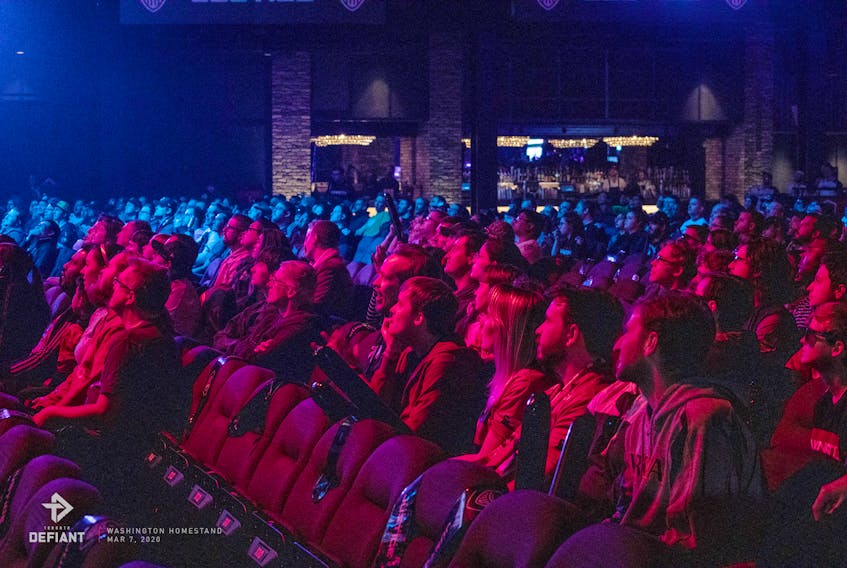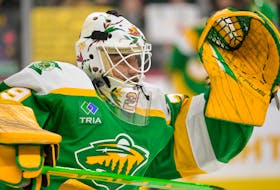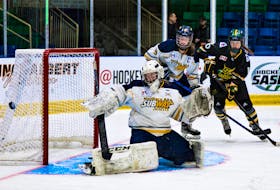On March 22, the Canadian Olympic Committee issued a statement to the Olympics’ organizing body, the IOC, informing it that Canada will not be participating in the 2020 Tokyo Games.
“We’re in the moment of watching our lives change," said Chris Overholt, the former chief executive officer of Canadian Olympic Committee. "And the way we connect and interact with each other, at least for the predictable future, is on the way of changing in so many ways we can’t imagine.”
Beginning his career in 1996 when he joined the Toronto Raptors as the director of corporate marketing, Overholt has held roles with some of North America’s most recognizable sports franchises, from the Toronto Maple Leafs to the Miami Dolphins. In 2011, he took on a new role with the Olympics.
"I’m very proud of the time in particular I spent with the Canadian Olympic Committee," said Overholt who commended the difficult decision made by the committee's president, Tricia Smith. "That was a high expression of leadership for me watching Tricia."
On Monday, the International Olympic Committee announced July 23, 2021, as the new date for the Tokyo Games.
Even though Overholt has moved on to something new, he is confident that, by the end of the decade, he is confident that his new industry will bring him back to the Olympic table.

Toronto Defiant
"I really believe so. And I’ve been I’ve been very consistent on that since I took this role on at OverActive Media."
Overholt is the CEO of Toronto-based OverActive Media, which owns The Toronto Defiant. Over the weekend, more than 45,000 fans watched online as Toronto Defiant defeated Boston Uprising.
“A lot of people were waiting for this game to see if we could bounce back because the last two weeks were difficult,” said Félix Münch, the Defiant’s head coach in an interview following their win on March 28. “It was good to grab the win. We played well, it was our own play style and we’re happy that it worked today.”
The Toronto Defiant are currently ranked 17th in the Overwatch League.
Overwatch is a video game. Picture all the aggression and energy of a UFC fight, but the fighters are wearing Sockem Boppers. Add some playful anime-inspired aesthetic and you have a good sense of Blizzard Entertainment’s approach to the usually gritty shooter genre.
To a professional gamer and enthusiastic fan, Overwatch is a sport. More accurately, it is an esport and the Overwatch League is their NHL.
Born in Montpellier, France, Münch had worked as a performance coach and athletics trainer for his local Club of Montpellier, the junior French national basketball teams and in the Major Women’s Basketball League.
Three years ago, he made the switch to esports and hasn’t looked back.
“I started to work in esports in my free time because a friend and I were really into video game competition,” said Münch. “I like the game (Overwatch) a lot, and I really liked the community so I said I’ll do it. I decided to drop my basketball career and go for it.”
In some ways, the area of overlap between professional gaming and traditional sports is slight. For one, the latter involves physical activity while the former entails eight hours per day of sitting in front of a computer or console.
But, like anything played at a high level which gets a highlight reel on ESPN (darts, billiards, bowling and poker among them), achievement in esports requires a champion’s mindset which is why franchises like the Defiant seek out people like Münch.
Or like Louis Wong, a native of Antigonish, N.S.
Wong now lives in Texas and works as an assistant coach for the Dallas Fuel.
“I did compete in badminton for almost 10 years and I think a lot of what I leaned in traditional sports transferred well to mentoring some of these kids where, for some, it’s their first commitment to anything like this.”
Esports players also face challenges familiar to any high-level competitor.
“It’s exhausting because you have to be really focused all the time,” explained Münch. “In this game, if a player goes into auto-mode for two seconds. the whole team will lose the match. You always have to adapt to how the opponent is playing and react just as quickly.”

Changing times and Olympic gamers
Wong’s team, the Dallas Fuel, is one of the original 12 teams to play in the Overwatch League’s inaugural season in 2018. Now there are 20, each with an online fan base averaging in the tens of thousands.
Streaming services for other esports games, like the immensely popular League of Legends, show an eye-popping number of people worldwide tuning in to watch competitive gaming.
Twitch, the leading streamer for video games, showed peak viewership in the last three days at just under 150,000 with more than 12 million views gained in the last year.
Before COVID-19 put a halt to it, the 2019-2020 season of Overwatch was set to host regular ticketed events in cities around the world. These “homestand” events are when different teams host and invite others to their home cities.
“Overwatch season 3 was supposed to be a big step because this year we were doing every game as a homestand,” said Wong.
“We did one last year and we sold I think around 5,000 seats, it was the biggest so far and we were supposed to be in China and Korea to play there, but obviously everything got cancelled. We can’t risk public safety by hosting events like that.”
Despite the set back, Overholt is extremely confident in the future of the industry.
“This industry is digital in its origins and has such a broad based inclusive community, that I think it stands to step a little further into the light than we have seen in the last couple of years.”
Overholt anticipates that that light could be shining on the Olympic podium in by 2028.
“Who could be better poised for incorporating esports into the program than Los Angeles? In many ways it’s the home of North American esports: it’s home to Activision Blizzard and Riot Games,” he said referring to the companies responsible for Overwatch and League of Legends.
“We should anticipate that there’s at least going to be a good discussion about what could be possible in Los Angeles.”









